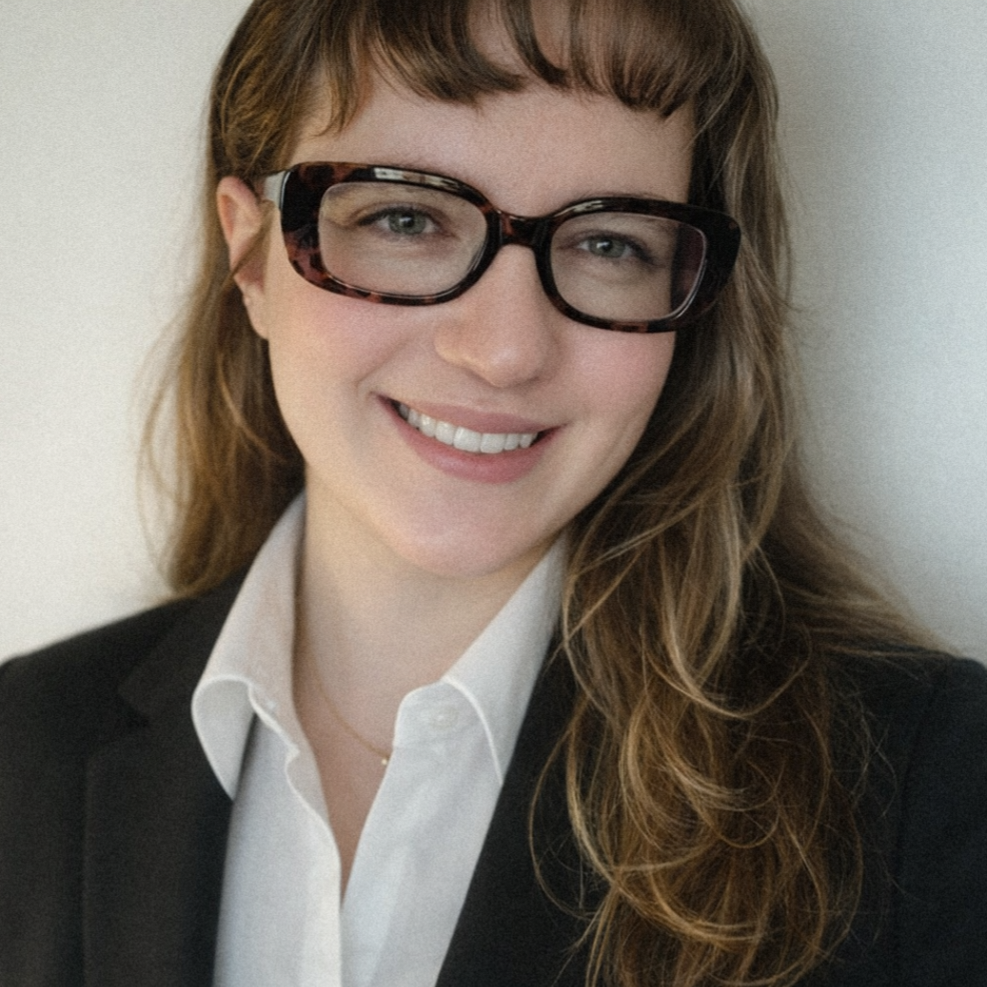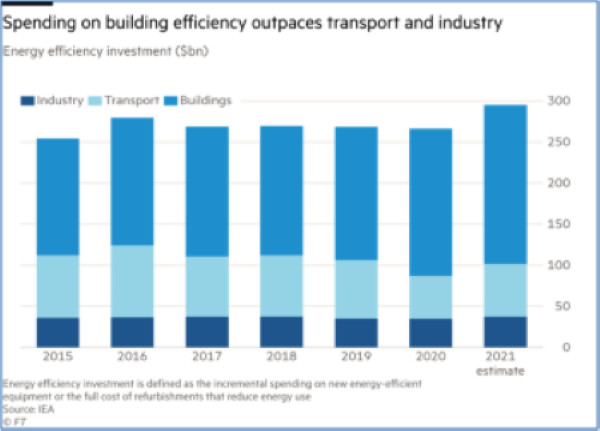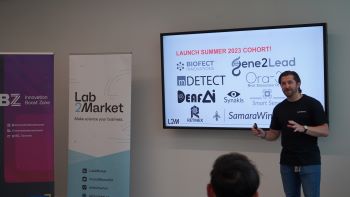The Short Report - September 27, 2023
GOVERNMENT FUNDING
Marci Ien, Minister for Women and Gender Equality and Youth, announced a $3-million investment over four years to support the LEAP Pecaut Centre for Social Impact (LEAP) to enhance the economic participation and prosperity of women in Canada, particularly those from underrepresented groups. This funding will expand the Equity Opportunity project, initiated in 2022, by adding two more non-profit community organizations and providing additional program support. These initiatives aim to tackle systemic barriers hindering the economic well-being of marginalized women, including youth, Indigenous communities, newcomers, low-income women and gender-diverse individuals. The initiative aligns with the broader federal budget allocation of $160 million for the Women's Program in 2023, which supports organizations serving women, and the launch of concurrent calls for proposals to bolster women's economic security, leadership opportunities and organizational capacity. Govt. of Canada
The Natural Sciences and Engineering Research Council of Canada (NSERC) announced that five Canadian research teams have been selected to work with international partners to address research challenges related to climate change and clean energy as part of the National Science Foundation Global Centres initiative. The joint initiative, which includes NSERC, the Social Sciences and Humanities Research Council of Canada, the U.S. National Science Foundation, Australia's Commonwealth Scientific and Industrial Research Organisation, and UK Research and Innovation, encourages and supports international collaborative research on climate change and clean energy. Research teams from McMaster University, McGill University, University of Toronto, University of Guelph, and University of Calgary will share a total of more than $18 million in funding. NSERC
The Government of Alberta invested $7 million, through the province's Technology Innovation and Emissions Reduction Fund administered by Emissions Reduction Alberta, to help oil sands producer Cenovus Energy study how small modular nuclear reactors (SMRs) could be used in northern Alberta's oil sands operations. Cenovus Energy's $26.7-million enabling study will look at whether SMR technology could be applied to steam-assisted gravity drainage projects in the oil sands, as part of long-term solutions to reduce emissions from industry operations. The study also will examine what additional information might be needed to pursue regulatory approval in the future. Govt. of Alberta
Read more: Debate intensifies over using reprocessed spent nuclear fuel in small modular reactors
Taking a close look at the benefits and risks of small modular reactors
GeologicAI, a Calgary-based company that specializes in digital rock analysis, secured an additional $10 million in funding from Export Development Canada (EDC) as an extension of its Series A financing round, led by Breakthrough Energy Ventures. This brings the total funding raised in this round to $30 million. GeologicAI's technology combines hardware, software and advanced machine learning to create a digital rock analytics platform. The company's proprietary core-scanning robot uses high-resolution multi-sensor data to analyze rock samples accurately, reducing the need for costly and time-consuming laboratory testing. The EDC's investment will support the firm's global expansion, allowing its AI-powered robot geologists to assist in the exploration and extraction of critical minerals necessary for the energy transition. GeologicAI
The Government of British Columbia invested a total of $4.75 million to strengthen the firefighting capacity of local fire departments. Many communities in B.C. rely on volunteer firefighters, and the province is offering enhanced training opportunities and equipment to bolster their capacity. Additionally, funding will be provided for educational campaigns aimed at fire prevention and safety. The funding includes:
- $1.4 million to the Union of British Columbia Municipalities for community firefighting training and the purchase of new or replacement fire equipment such as fire hoses and first-aid kits.
- $1.75 million to the Fire Chiefs’ Association of British Columbia to support rural communities and First Nation fire departments by providing regional access to joint fire training for fire services.
- $1.6 million to the BC Injury Research and Prevention Unit for a targeted marketing campaign focused on segments of the population over-represented in fire-related incidents, such as youth and seniors. Govt of B.C.
RESEARCH, TECH NEWS & COLLABORATIONS
Researchers at the University of Waterloo and the National Research Council (NRC) are addressing the connectivity challenges faced by rural and remote communities in Canada, where unreliable satellite internet connections often disrupt daily life. They've developed a solution called the Multivariate Variance-based Genetic Ensemble Learning Method, which combines multiple AI-driven models to detect anomalies in satellite and satellite network operations, preventing major disruptions. By utilizing publicly available datasets from various satellite applications, the researchers said their method outperformed existing models in terms of accuracy and reliability. This research aims to create more dependable and secure satellite systems, especially important as satellite networks play an increasingly crucial role in the future. University of Waterloo
The Canada Research Coordinating Committee (CRCC) announced that Setting New Directions to Support Indigenous Research and Research Training in Canada, the tri-agency strategic plan to strengthen Indigenous research capacity in Canada, has been extended from its original 2019-22 timeframe to March 31, 2026. The extension reflects impacts of COVID-19, funding considerations and dedication to the plan’s goals, and ensures progress continues in partnership with Indigenous Peoples, including through the recently established Indigenous Leadership Circle in Research. The strategic plan is published by the federal research granting agencies - the Canadian Institutes of Health Research, the Natural Sciences and Engineering Research Council, and the Social Sciences and Humanities Research Council. CRCC
Deep Sky, a Montreal-based carbon removal project developer, and Mission Zero Technologies, a London, U.K.-based developer of direct air capture (DAC) technology, have partnered to deploy DAC facilities in Canada. The partners will begin with a first-of-a-kind demonstration of the technology, capturing 250 tons of carbon dioxide annually. Deep Sky will operate a DAC system from Mission Zero Technologies as part of Deep Sky's Alpha Lab test facility in Quebec in 2024, tapping the province's hydroelectric power for the DAC system, which uses electrochemical separation technology. The partners aim to eventually build commercial facilities that capture between 100,000 and one million tons annually. Newswire.ca
The University of Waterloo and Rogers Communications embarked on a groundbreaking collaboration to revolutionize hockey analytics using 5G technology. Inspired by a 2020 hockey hackathon, this partnership seeks to transform how hockey fans interact with the game and provide valuable insights for data-driven decisions. Infrared-emitting devices embedded in pucks and player uniforms collect data, which is then relayed via state-of-the-art infrared camera systems in NHL arenas. Leveraging the low latency and high bandwidth of 5G technology, real-time gameplay analytics can be transmitted to viewers' smartphones and sports broadcasters. The collaboration aims to enhance fan engagement by offering real-time metrics and immersive visual overlays during broadcasts, providing fans with novel insights into the game's dynamics. Additionally, say the project partners, this research will significantly impact coaching, player development and team strategies, ushering in a new era of hockey analytics similar to the "Moneyball" revolution in baseball. University of Waterloo
Dr. Henry A. Dunn, an assistant professor in the department of pharmacology and therapeutics at the University of Manitoba's Max Rady College of Medicine, was awarded a $100,000 grant from the 2023 Future Leaders in Canadian Brain Research fund. This program, supported by Brain Canada, aims to advance research focused on brain disorders and diseases, such as ALS, epilepsy and brain injuries. Dunn's research focuses on studying G-protein-coupled receptors (GPCRs) in brain cells, which are a primary target in the pharmaceutical industry. He recently discovered a new mechanism by which GPCRs communicate with other brain cell, and this mechanism has been found to be disrupted in several brain disorders, including autism, ADHD and epilepsy. Dunn's work could pave the way for the development of more targeted treatments for these conditions and offers significant potential for improving the lives of individuals with brain disorders. U of Manitoba
Toronto-based autonomous driving startup Waabi has entered into a 10-year partnership with Uber Freight, bundling its technology with Uber Freight's logistics platform and autonomous trucking operations to create a driver-as-a-service solution. The collaboration aims to provide shippers and carriers with the infrastructure to deploy and manage autonomous trucks. The companies plan to deploy "billions of miles" worth of Waabi Driver capacity over the next decade, starting in Texas. Waabi's approach involves using its proprietary AI-powered simulator, Waabi World, to train its autonomous driving software to respond to various scenarios and edge cases before road testing. Waabi.
Vancouver-based Nano One announced a collaboration agreement with Sumitomo Metal Mining in Japan, including a $16.9-million equity investment by Sumitomo in Nano One. The collaboration is aimed at supporting development of battery ecosystems, and includes ongoing R&D for the production of clean, reliable and long-lasting battery materials for electric vehicles, energy storage and consumer electronics. Nano One has patented processes for the sustainable production of lithium-ion battery cathode materials. Sumitomo is a vertically integrated miner, refiner and producer of cathode active materials. Nano One plans to build its first commercial lithium iron phosphate battery materials plant adjacent to its existing production-scale facility in Candiac, Quebec. Nano One
NASA's OSIRIS-REx mission, which began in 2016, successfully brought back a capsule containing rocks and dust collected from asteroid Bennu, landing in Utah. The capsule was swiftly transported to a clean room and connected to a continuous flow of nitrogen to maintain sample purity. NASA said the return of these samples, estimated at 8.8 ounces, is a historic achievement and will contribute to scientific research on planet formation, organic origins and water's role in the development of life on Earth. The sample will be sent to NASA's Johnson Space Center for analysis and distribution to scientists worldwide, including in Canada. NASA
VC & PRIVATE INVESTMENT
The clean energy initiative for Indigenous communities, a partnership between ClimateDoor and Goparity Canada, has exceeded its funding target, reaching over 100 per cent in pledged funds. ClimateDoor, a sustainability venture builder, joined forces with Goparity Canada, an online impact investment platform, to leverage innovative financing models and crowdfunding expertise in support of sustainable projects, particularly in Indigenous communities. The overwhelming response from both accredited and non-accredited investors highlights the strong market interest in impactful and sustainable investment opportunities, say the partners. Globe NewsWire
Farm Credit Canada (FCC) has partnered with AGTECH ACCELERATOR, a venture-backed accelerator program founded by Cultivator powered by Conexus, Emmertech, and Economic Development Regina, to support agriculture startups in Canada. FCC's commitment to fostering innovation in the agriculture and food industry aligns with AGTECH ACCELERATOR's mission to provide capital and mentorship to startups developing systems, machines and data solutions for sustainable food production. FCC says the partnership reflects its venture capital program's dedication to investing in the future of agriculture, enabling Canadian entrepreneurs to grow and scale with greater strength. AGTECH ACCELERATOR, launched in 2021, offers resources, programming and funding to ag-tech companies, with each participant receiving a $100,000 equity investment at intake, furthering innovation in the sector and positioning Canada as a source of agriculture technology and practices. FCC
Calgary-based ZayZoon raised US$34.5 million in debt equity for its Series B financing, in a round led by Framework Venture Partners, with co-investment from Export Development Canada and participation from ATB Financial as well as exiting shareholders. Employers use the company's "Earned Wage Access" technology to let workers draw their earned wages between paydays. ZayZoon said the funding will help support enhanced resources and features for employees, and for employers in industries such as hospitality, retail, food service and many others. BusinessWire
Secoda, a Toronto-based startup specializing in AI-powered data management, raised $US14 million in a Series A funding round led by Craft Ventures, which also led Secoda's seed round last year. The startup's platform connects with data platforms like Snowflake, dbt, and Looker to catalog data and metadata for employees, allowing them to easily locate and understand data tables. Secoda's latest offering is an AI Assistant that can provide answers to data-related questions using natural language prompts, generate documentation and automate common data requests. The funding will be used to expand the capabilities of Secoda's AI Assistant. Seconda
Oneka Technologies, a Sherbrooke, Quebec-based provider of wave-powered desalination solutions, closed a $12.5- million Series A funding round led by the Hoffecker Family and joined by venture funds, family offices and private angel investors. Oneka's technology aims to offer a sustainable alternative to conventional desalination, which involves high energy consumption and environmental impact. The company's wave-powered desalination technology allows for sustainable desalination growth without significant carbon emissions. The funds raised will support the deployment of Oneka's solutions to meet the increasing demand for desalination in various regions worldwide. Oneka
The Canadian Food Innovation Network, through its Food Innovation Challenge Program, awarded more than $3 million to two food-tech projects focused on cellular food technologies for the cultivated meat sector. Ontario-based Myo Palate received more than $1.9 million for a project to scale cultivated pork production using pig embryonic stem cells. The company is now collaborating with University of Toronto researchers to apply machine learning algorithms to refine cell growth conditions. The Verschuren Centre in Nova Scotia received about $1.2 million for automation and digital twin integration for precision fermentation scale up of cell-based food ingredients. The centre, which is collaborating with SMEs, plans to build a 10,000-litre precision fermentation facility, which will be the first-of-its-kind in Canada. Cellular food is a potential $12.5-billion opportunity for Canada, according to a 2021 report by Ontario Genomics. Food in Canada
United Kingdom restaurant logistics startup Captain AI has secured $2.8 million in seed funding to expand its services in Canada and the United States. The company provides artificial intelligence-powered software to help restaurant chains manage in-house food delivery operations, improve delivery speed, optimize kitchen workflows and enhance the customer experience. Captain AI initially launched in the U.K. but will now relocate to Canada and expand across North America. The startup's anchor client is Pizza Pizza, Canada's largest pizza chain with more than 730 locations. Captain AI plans to invest a significant portion of its seed funding in sales and marketing to bring its platform to more restaurant chains across North America. Betakit.
POLICY & REPORTS
The federal government now has the results of an investigation into Sustainable Development Technology Canada (SDTC), an agency that funds early-stage green technology projects. The investigation was prompted by a group of former employees' allegations about conflict-of-interest and fiscal mismanagement at SDTC. Innovation, Science and Economic Development called on an external firm, Raymond Chabot Grant Thornton, to "examine the situation and validate the alleged facts." The final report, drafted by an outside firm, will be presented to Industry Minister François-Philippe Champagne, once ISED officials prepare an "action plan" to respond to the investigation's findings, sources told Radio-Canada. SDTC plays a key role in Canada's efforts to transition to a greener economy by supporting small and medium-sized businesses. The agency has a budget of $170 million this year, set to increase every year to reach $320 million annually in 2025-2026. SDTC has provided about $1.6 billion in funding to more than 500 businesses since its inception in 2001. CBC
Read more: Allegations of mismanagement beset Canada's main clean tech funding organization
ANALYSIS: Government needs to fix problems at Canada’s main cleantech funding organization
THE GRAPEVINE
Tyler Groeneveld, Corteva Agriscience’s North American Director, Grains and Oils, was elected chair of the board of directors at Protein Industries Canada’s. Groeneveld has served on the board since the inception of Protein Industries Canada, a federally supported global innovation cluster, in 2019. Frank Hart, who was the inaugural board chair of Protein Industries Canada and served as chair since 2018, remains on the board.
University of Alberta graduate Dr. Michel Sadelain received the 2024 Breakthrough Prize in life sciences in recognition of his discovery of cancer-fighting immunotherapy based on the genetic engineering of a patient's own T-cells. Sadelain, an immunologist and director of the Center for Cell Engineering at Memorial Sloan Kettering Cancer Centre in New York. demonstrated that T-cells - a type of white blood cell that helps the body's immune system - can be engineered into a "living drug" with the ability to recognize and destroy cancer cells. Another UAlberta graduate, Dr. Fred Van Goor, PhD, who was born and raised in Calgary, also received a Breakthrough Prize in life sciences together with Dr. Sabine Hadida, PhD and Dr. Paul Negulescu, PhD. The trio, colleagues at Vertex Pharmaceuticals in San Diego, led development of a combination of drugs that can repair the faulty protein that causes cystic fibrosis, providing an effective treatment to more than 90 per cent of those afflicted with the life-threatening disease. The Breakthrough Prize, worth US$3 million, is the world's largest award for advances in physics, mathematics and biomedicine. UofA, Breakthrough Prize Foundation
Iliana Ivanova is the new EU commissioner for research, innovation and education. A former member of the European Parliament and a member of the European Court of Auditors, Ivanova was nominated for the position in late June after her predecessor, Mariya Garbriel, was called back to Bulgaria to help form a coalition government. Ivanova takes the job amid major evaluations of the Horizon Europe research program underway and the first moves to shape the next EU research program. Science/Business
R$
Events For Leaders in
Science, Tech, Innovation, and Policy
Discuss and learn from those in the know at our virtual and in-person events.
See Upcoming Events
You have 0 free articles remaining.
Don't miss out - start your free trial today.
Start your FREE trial Already a member? Log in
By using this website, you agree to our use of cookies. We use cookies to provide you with a great experience and to help our website run effectively in accordance with our Privacy Policy and Terms of Service.





